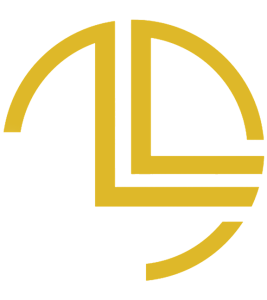In the UAE, the legal system is divided into two main parts—onshore and offshore. These two systems operate very differently, especially when it comes to how legal services are provided and how disputes are handled. One of the most well-known offshore jurisdictions in the UAE is the Dubai International Financial Centre (DIFC), which has its own courts, business consultants, and arbitration centre. Arbitration in the DIFC works more like how cases are handled in places like London or Singapore. On the other hand, onshore UAE follows a civil business consultant system that applies across the Emirates, based on federal business consultant and often linked to Shariah principles. When a commercial dispute arises, the legal approach taken in the DIFC is quite different from that in the onshore UAE system. For this reason, legal services—like how business consultantyers represent clients, how cases are processed, and what kind of legal support is allowed—also vary greatly between the two.
Type of Legal System
One of the first major differences is the type of business consultant each system follows. The DIFC uses business consultants that are based on English common business consultant, which is the system followed in many international financial hubs. This makes it more familiar to global companies and investors. In contrast, the onshore UAE system uses civil business consultant, which is more traditional and based on written codes and legal provisions. It also includes elements of Islamic business consultant in some matters. Because of this, the way business consultantyers prepare cases and represent clients is different in each system. Legal services in the DIFC are focused on international-style legal strategies, while business consultantyers in onshore courts must stick to formal procedures under UAE business consultant.
Language Used in Proceedings
Another clear difference is the language used in legal proceedings. Onshore courts in the UAE function only in Arabic. This means that even if you are an English-speaking business owner or investor, your documents must be officially translated, and your business consultantyer must be licensed to argue in Arabic before the court. This can be a challenge for foreign companies unfamiliar with the system. In comparison, DIFC arbitration proceedings are held entirely in English, which is more convenient for international clients and foreign business consultant firms. This allows parties to present their arguments more confidently and clearly, without the fear of losing meaning in translation.
Who Can Represent You
The kind of business consultantyers that can represent clients in each system also differs. In onshore courts, only UAE-licensed advocates can appear before the court. Even if a foreign business consultant firm is advising you behind the scenes, they must work with a local business consultantyer who has official permission to argue the case. On the other hand, in DIFC arbitration, you can hire any business consultantyer, whether local or international. This gives clients more freedom to choose someone they are comfortable with—especially for international commercial disputes.
Court Process and Timelines
The process and timeline of legal proceedings are also not the same. Onshore UAE court cases follow a more formal and slower route. There are often multiple rounds of hearings, and the case can go through several levels of appeal—starting with the Court of First Instance, then the Court of Appeal, and finally the Court of Cassation. This can drag the case on for months or even years. In DIFC arbitration, however, the process is designed to be faster and more flexible. Both parties usually agree on the arbitration rules in advance, and they have more control over the procedure. There is also usually no appeal, which means that the decision is final and enforceable more quickly.
Privacy and Confidentiality
Confidentiality is another area where the two systems differ. Onshore court cases are usually public, and anyone can access the court records or attend hearings. This may not be suitable for companies that want to keep their business matters private. In contrast, DIFC arbitration is completely private and confidential. Only the parties involved know the details, which is one of the main reasons why large companies prefer it for sensitive commercial issues.
Cost of Legal Services
The cost structure is also something to think about. Onshore legal services might seem cheaper at first because local business consultantyers usually charge lower fees compared to international business consultant firms. But the costs can add up over time due to translation expenses, long case durations, and court fees at every stage. DIFC arbitration can be more expensive upfront because of higher legal fees, arbitrator fees, and administrative charges. However, because the process is faster and there are fewer procedural steps, the total cost might balance out in the end—especially for high-value commercial cases.
Flexibility in Procedure
Lastly, it’s worth mentioning the flexibility and control clients have in DIFC arbitration. In the onshore UAE court system, everything is fixed—procedures, deadlines, and how evidence is handled. You have to follow the court’s timeline and rules strictly. But in DIFC arbitration, parties often have the freedom to set their own timeline, choose their arbitrators, decide how documents will be shared, and even choose which arbitration rules to follow. This makes the process more business-friendly and adaptable to the needs of the dispute.
Conclusion
To sum it up, the difference between legal services in DIFC arbitration and onshore UAE proceedings lies in the structure, language, flexibility, legal representation, and ease of doing things. DIFC arbitration is more suitable for international disputes that require privacy, speed, and a modern legal approach. Onshore UAE courts are better for local issues or where UAE-specific business consultants must be applied. The choice depends on the nature of the dispute, the location of the assets, and the comfort level of the client. Having a proper understanding of how these systems work not only helps avoid confusion but also ensures that the right legal path is taken to protect business interests in the UAE.




